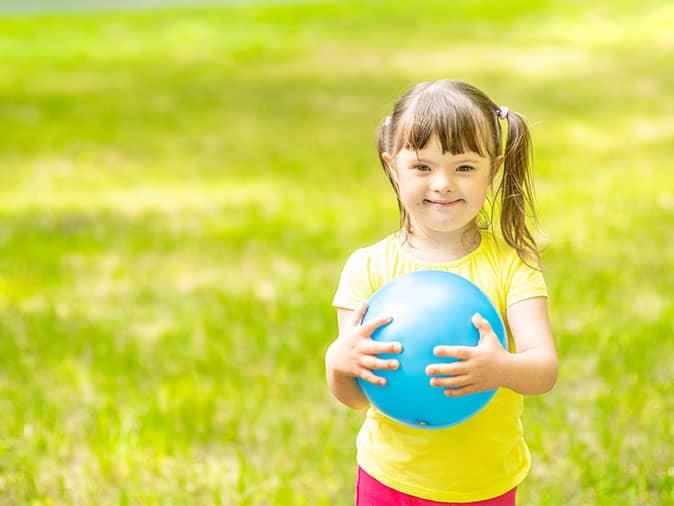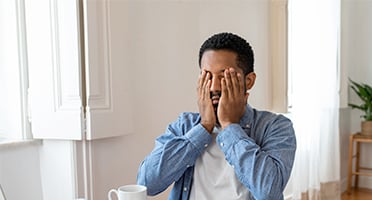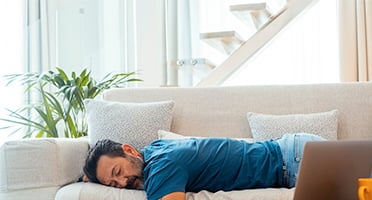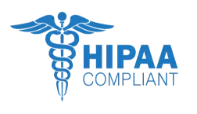Children with Hypertension & Down Syndrome Likely To Have Sleep Apnea
As parents, the last thing we want to discover is that our child not only has one severe health issue but two. The realization is scary and stressful, to say the least. But the best thing for your child—or anyone for that matter—is to find out all the information and make informed decisions based on medical data. Researchers from the Cincinnati Children’s Hospital conducted research on a little-known relationship: the connection between childhood pulmonary hypertension and obstructive sleep apnea

Researchers suggest that children with pulmonary hypertension should undergo routine testing for obstructive sleep apnea based on data collected during the ten-year study. They also noted that children who were part of the study and diagnosed with trisomy 21 (Down syndrome) were at higher risk for obstructive sleep apnea. This discovery promoted researchers to suggest routine testing obstructive sleep apnea testing for Down syndrome children as well.
What is Obstructive Sleep Apnea?
Obstructive sleep apnea (OSA) is a sleep disorder defined by a stoppage in breathing while asleep due to a blockage in the airway. Many have heard of sleep apnea, but it’s less prevalent in children, which leads people to believe that children cannot get sleep apnea. That is far from the truth. Anyone of any age, weight, gender and health history can have sleep apnea.
Children and Sleep Apnea
More children than we realize are at risk for and have sleep apnea. It can often be misdiagnosed as a behavioral problem or even ADHD, as, in some cases, these are merely symptoms of childhood sleep apnea. Children get sleep apnea for many of the same reasons as adults, including obesity, enlarged adenoids or tonsils, developmental issues, and poor orthodontic work. If the jaw is positioned too far backward—for whatever reason—there isn’t enough room in the airway for the tongue and soft tissues to relax during sleep while letting enough air through.
Adults with sleep apnea are more at risk for high blood pressure, such as with pulmonary hypertension, and it’s been noted before that Down Syndrome is a risk factor for obstructive sleep apnea. Since childhood sleep apnea is less researched, there is less literature on the connections between obstructive sleep apnea and other diseases. But that doesn’t mean they aren’t there, and we have no reason to think that the health complications present in adults with sleep apnea can’t be prevalent in children, too.
Pediatric Sleep Apnea Signs and Symptoms
How does a parent know if they should get their child tested for sleep apnea? Well, following data and research recommendations, children with pulmonary hypertension and Down syndrome should get regular testing for obstructive sleep apnea. But there are signs and symptoms beyond the presence of these conditions that parents can watch for.
- Excessive daytime sleepiness
- Low energy
- Difficulty focusing
- Low mood
- Headaches
- Learning, memory, and/or behavioral difficulties
- Hyperactivity
- Snoring
- Choking or gasping during sleep
- Witnessed stoppages in breathing
- Mouth breathing
- Restless sleep
- Night terrors
- Bedwetting
How Do I Get My Child Tested for Obstructive Sleep Apnea?
There are two ways you can get your child tested for sleep apnea. You can get a home sleep test or do a lap sleep test.
Lab Sleep Testing
Lab sleep tests are a one-night tests where your child goes to a sleep testing facility to sleep. The testing facility will have sleep techs there to monitor your child as they sleep. The technicians and equipment will monitor brain activity, eye movements, other muscle movements, breathing, heart rate, blood oxygen levels, and breathing effort.
Within a week to 10 days, your child’s sleep data will be sent to a sleep physician, and you’ll receive a diagnosis.
Home Sleep Study
Home sleep studies are becoming increasingly popular due to how convenient and comfortable they are. Your child can sleep in their own bed and still receive an accurate diagnosis from a sleep physician. Home sleep studies are conducted over two nights to account for apnea fluctuations. Data is collected from monitors that your child wears while they sleep. But don’t worry, these monitors are comfortable and don’t cause difficulty sleeping. The monitors will measure heart rate, blood oxygen levels, breathing, and breathing effort. This data gives sleep physicians the information they need to provide an accurate sleep apnea diagnosis. Usually, this diagnosis happens within a few days.
Is Sleep Apnea Testing Right For My Child?
If your child is diagnosed with pulmonary hypertension or Down syndrome, data supports regular testing for obstructive sleep apnea. The prevalence of obstructive sleep apnea in those with pulmonary hypertension and Down syndrome is high enough to warrant this precautionary measure.
While the study conducted by the Cincinnati Children’s Hospital only looked at the presence of obstructive sleep apnea with pulmonary hypertension and Down syndrome, we can speculate that the fragmented sleep from OSA could worsen symptoms of the two conditions. We predict more studies in the future that will look into the effects of sleep apnea treatment on the severity of pulmonary hypertension and Down syndrome.
Effective At-Home Sleep Testing for Children
SleepTest.com offers home sleep testing for children. If you’re worried that your child may have obstructive sleep apnea, order a home sleep study with our easy-to-use online portal and get connected with a sleep physician today.

Feeling tired all the time, even after a full night’s sleep? You might be suffering from sleep apnea. Discover how an at-home sleep test can help diagnose the root cause of your fatigue—and get you back to feeling like yourself.

Spring is here—and so is the pollen. For the millions dealing with seasonal allergies, the symptoms can be more than just annoying. And if you also have sleep apnea, those stuffy nights and restless sleep can get even worse.
Let’s take a closer look at how spring allergies and sleep apnea affect each other—and what steps you can take to sleep more comfortably.




